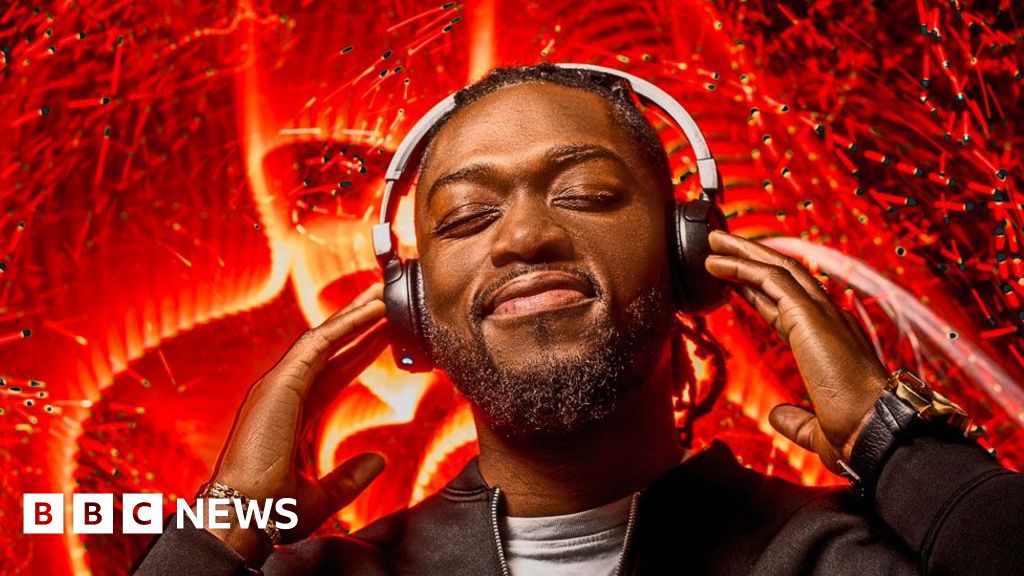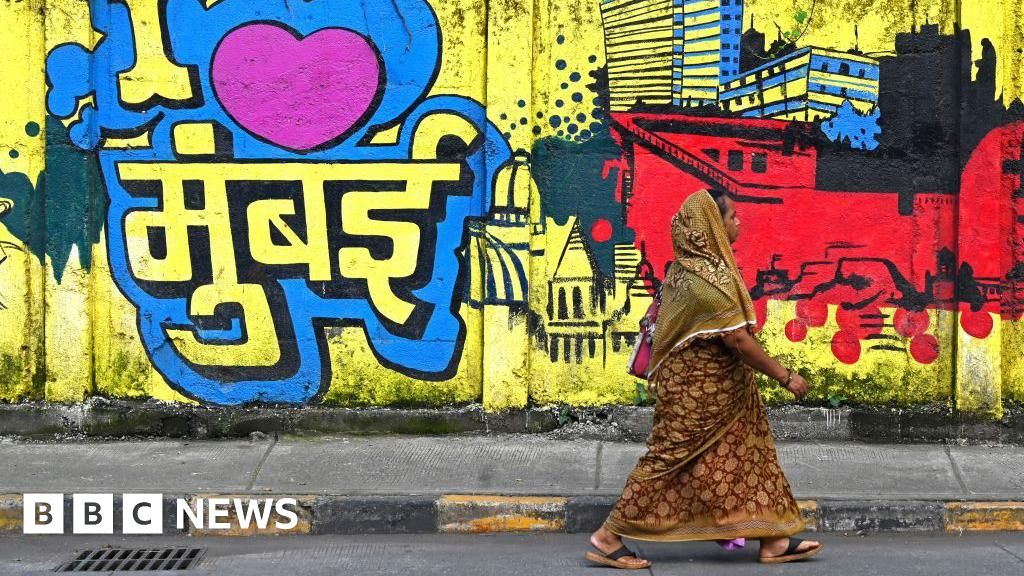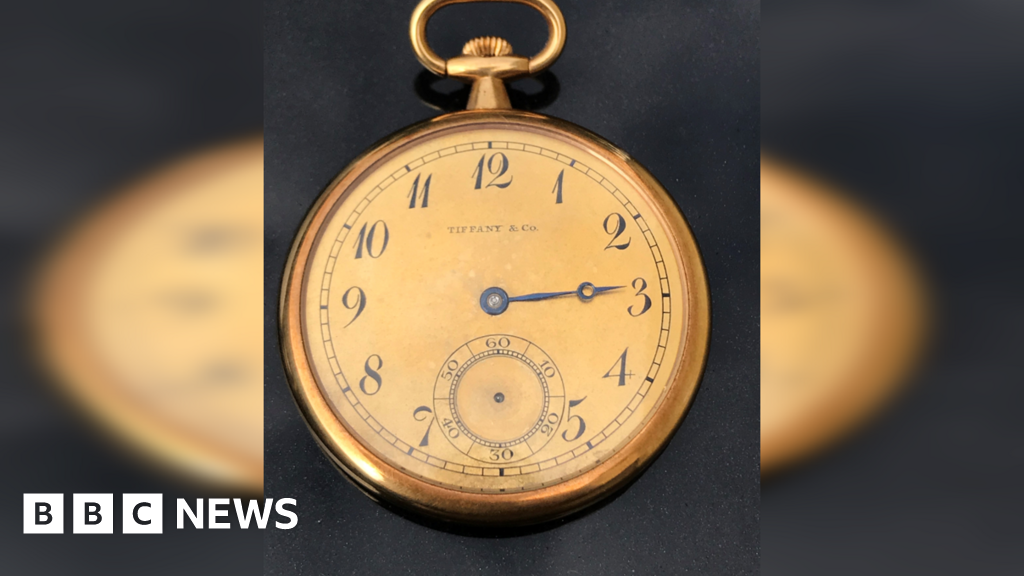ARTICLE AD BOX
By Vineet Khare
BBC Hindi
Yati Narsinghanand Saraswati heads a powerful temple in Uttar Pradesh state
Who is the militant Hindu priest who has been arrested over a vitriolic speech he gave against Muslims last month?
Yati Narsinghanand Saraswati, the 58-year-old head of the powerful Dasna Devi temple in the northern Indian state of Uttar Pradesh (UP), was one of several right-wing Hindu leaders who spoke at an event in Haridwar city, where they openly called for violence against Muslims.
Videos of the event travelled swiftly on social media, sparking a flurry of shocked and angry reactions, an open letter to Prime Minister Narendra Modi and police complaints from concerned citizens. The Supreme Court is hearing a petition demanding an independent inquiry into the event.
Mr Narsinghanand is no stranger to controversy. For months, he has been accused of making deeply offensive remarks against women and minorities. His videos and words reach millions on social media, spawning an army of right-wing followers.
He has reportedly called Muslims "demons", threatened to "eliminate" them and said he is striving to create an India "free of Islam". In September, police in UP registered three cases against him for allegedly insulting women after a video of him describing female politicians as mistresses of their male counterparts went viral.
Mr Narsinghanand is already facing charges in more than 20 different cases, according to his lawyer, Maa Chetnanand Saraswati, who is also a priest at the Dasna Devi temple.
The Dasna temple now bars Muslims from entering its premises
Police shared details of 10 of the cases with the BBC - charges included attempted murder, abetment of suicide, and dacoity (banditry). Ms Chetnanand said the cases were politically motivated.
His close aide and "confidant" Anil Yadav said the cases were "like our jewels. That's no problem".
When the BBC asked Mr Narsinghanand about the allegations of hate speech, he became agitated and threw his mic away.
Born Deepak Tyagi, Mr Narsinghanand is reported to be an engineer who studied in Russia and worked in the UK before returning to India. He joined the Dasna temple as a priest in 2007.
Critics say his latest comments in Haridwar are aimed at stirring up passions in UP, India's most populous state, where the BJP's Yogi Adityanath - who himself has been criticised for anti-Muslim rhetoric - is up for re-election as chief minister in polls starting in February.
They say Mr Narsinghanand is protected by his closeness to BJP leaders - and the fact that his hardline politics benefits what they say is the party's polarising agenda.
"No prominent BJP leader can now associate with him because of his statements and their international ramifications. However, the kind of hate he has managed to generate directly benefits the BJP," said Alishan Jafri, a Delhi-based journalist at The Wire's Hate Watch, which tracks hate crimes.
No major BJP leader has so far condemned the speeches or the event itself. BJP leader and former spokesperson Ashwini Upadhyay attended the Haridwar event, but said that he had been present for only half an hour on the last day.
Police had registered cases against Mr Narsinghanand and several others for " promoting enmity among groups" and "outraging religious feelings" in connection with the event.
Image source, Getty Images
Image caption,Uttar Pradesh Chief Minister Yogi Adityanath is up for re-election next month
But the first arrest came after more than a month - on 13 January, when Uttarakhand state police arrested Jitendra Narayan Tyagi. He is a Muslim - named Waseem Rizvi - who says he has converted to Hinduism and changed his name.
Mr Narsinghanand, who was with Mr Tyagi when he was arrested in Haridwar, was heard on video telling police "you will all die", as they led Mr Tyagi away.
He is heard demanding to know why Mr Tyagi was being arrested. "I am with him in all the three cases. Did he do it alone?" he asked.
When asked about this, Mr Narsinghanand said: "Do I have weapons? Should a terrorism case be filed against me for speaking out? In that case, half of India's population should be in jail."
Last Sunday, when Mr Narsinghanand was finally arrested, police said it was in connection with two different cases - for giving a hate speech and making derogatory remarks against women.
In the weeks leading up to his arrest, critics wondered how his contentious personality and divisive rhetoric had escaped investigation for so long.
This is especially stark in comparison to a spate of arrests in UP in recent years against those accused of far lesser offences - people have been held over tweets that could allegedly disrupt peace, a journalist was arrested for "irresponsible" reporting that could "incite violence", and others were held for putting up posters against a controversial citizenship law.
Many of them were detained or charged under a draconian anti-terror law, the Unlawful Activities (Prevention) Act or UAPA, which makes it hard to get bail. PM Modi's government has been accused of misusing the law to stifle dissent and target minorities - allegations they deny.
Image source, Getty Images
Image caption,Mr Narsinghanand has long been accused of hate speeches against Muslims
Rajesh Tyagi, one of the 76 lawyers who wrote to the top court seeking an inquiry into the Haridwar event, said it's Mr Narsinghanand who should be charged under UAPA given the violent rhetoric he has allegedly been using for months.
In October, Mr Narsinghanand was appointed head of the largest sect of Hindu seers.
Weeks before that, a 14-year-old Muslim boy was badly beaten for entering the Dasna temple - Mr Narsinghanand called him a "trained killer". Police said the boy was lost and entered the temple premises accidentally.
The temple is revered by local Hindus and Muslims, and the grounds host an annual fair for the festival of Dussehra that draws the whole community. But now a banner outside the temple says, "Muslims are barred from entry".
A poster inside the temple now calls on Hindus to give birth to no fewer than five children, a reference to a popular but baseless right-wing myth that India's 200-odd million Muslims will soon outnumber its 800 million Hindus.
Outside, the temple is surrounded by policemen who allow entry only with ID.
They say Mr Narsinghanand's life is under threat. The state spends up to three million rupees ($40,570; £29,490;) a month to provide him security.
In the town of Dasna, where Muslims account for more than 80% of the population, a district police officer, speaking on the condition of anonymity, said Mr Narsinghanand's speeches had further polarised the community.
A local Muslim, who wished to remain unnamed, said he was trying to "spoil religious relations" in the area.
But many Hindus support him. Narendra Sharma, a shopkeeper, said he had unified Hindus. For many of the BJP's hardline supporters, Mr Modi isn't going far enough.
"Mr Narsinghanand's supporters are mostly Mr Adityanath's supporters, not Mr Modi's supporters," Mr Jafri said.
"There is one leader in the BJP. His name is Yogi Adityanath," Mr Yadav said. "Mr Modi has opened avenues for Muslims that has made them very powerful in the past 10 years," he added.
Older residents recalled a time when Dasna was more inclusive - but feared that this has already changed.
Muslims in India tell the BBC why they fear losing their citizenship rights.

 2 years ago
44
2 years ago
44








 English (US)
English (US)